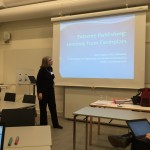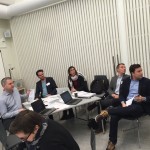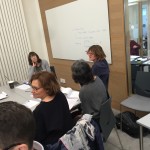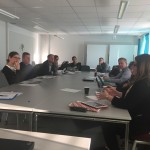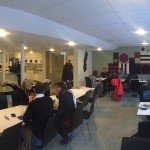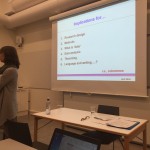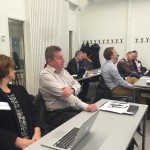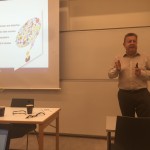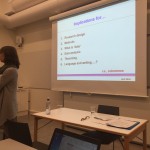 Great news, the other day TripleED received some funding from Per & Eivor Wikströms foundation for the collaboration with Linda Rouleau at HEC Montreal and the further establishment of the Organizing Extreme Contexts research network. The activities include research visits for Doctoral students, writing retreats, a doctoral course and the organizing of workshops to name but a few. The project is a two year project and in total we received 220 000 kr (approximately 25000 USD).
Great news, the other day TripleED received some funding from Per & Eivor Wikströms foundation for the collaboration with Linda Rouleau at HEC Montreal and the further establishment of the Organizing Extreme Contexts research network. The activities include research visits for Doctoral students, writing retreats, a doctoral course and the organizing of workshops to name but a few. The project is a two year project and in total we received 220 000 kr (approximately 25000 USD).
Welcome home!
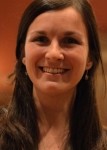 TripleED are happy to welcome Virginia back home after having spent a couple of months at HEC Montreal during the fall.
TripleED are happy to welcome Virginia back home after having spent a couple of months at HEC Montreal during the fall.
2nd workshop on Doing research in Extreme contexts comes to an end
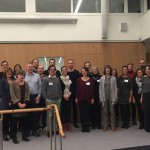 After two days of intense, interesting discussions this wonderful event have come to an end. It is indeed very rewarding to discuss research and twist and turn on the arguments that hopefully will take us, as a community, one step further in our knowledge and theorizing about extreme contexts. Today, the last day, we had the opportunity of participating in a workshop held by Ann Langley on Extreme Publishing. Essentially dissecting two papers on Extreme contexts and examining how the arguments were constructed. In addition of this we had four very interesting roundtable sessions with topics ranging from learning and sensemaking to reflexivity and disaster reports. All in all a very invigorating event! – and more to come!
After two days of intense, interesting discussions this wonderful event have come to an end. It is indeed very rewarding to discuss research and twist and turn on the arguments that hopefully will take us, as a community, one step further in our knowledge and theorizing about extreme contexts. Today, the last day, we had the opportunity of participating in a workshop held by Ann Langley on Extreme Publishing. Essentially dissecting two papers on Extreme contexts and examining how the arguments were constructed. In addition of this we had four very interesting roundtable sessions with topics ranging from learning and sensemaking to reflexivity and disaster reports. All in all a very invigorating event! – and more to come!
Of course we have had multiple presentations by TripleED people; Thomas Biedenbach, Ola Lindberg, Oscar Rantatalo, Antti Ainamo.
The first day of the Doing research in an extreme contexts over
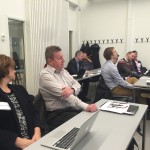 So, the first day of the Doing research in an extreme contexts are about to end. One more day to come! So far extremely interesting discussions, both in plenaries, master classes and roundtables. Among other things discussed have been Constructing mysteries (Mats Alvesson), Methodological Opportunities and Challenges of Researching Extreme Contexts (Ann Cunliffe) and Researching tomorrow’s crisis (David Buchanan). These topics have then also been partly covered/touched upon in roundtables. But, as I wrote, more to come tomorrow.
So, the first day of the Doing research in an extreme contexts are about to end. One more day to come! So far extremely interesting discussions, both in plenaries, master classes and roundtables. Among other things discussed have been Constructing mysteries (Mats Alvesson), Methodological Opportunities and Challenges of Researching Extreme Contexts (Ann Cunliffe) and Researching tomorrow’s crisis (David Buchanan). These topics have then also been partly covered/touched upon in roundtables. But, as I wrote, more to come tomorrow.
International workshop on DOING RESEARCH IN Contexts: from methodological to ethical considerations
@ 28th and 29th of January
 The workshop is part of the Organizing in Extreme Contexts workshop series, and network. The workshop focuses on the methodological and ethical considerations associated with doing research in extreme contexts. Extreme contexts include ” risks of severe physical, psychological or material consequences…to organizational members or their constituents » (Hannah et al., 2009)”. The Ebola virus epidemic in West Africa, the resurgence of ideological extremism, and the accidental death of climbers in Nepal are recent examples. Because of the risk of the researchee and the researcher, the inability to predict significant events, and the not so uncommon inaccessibility, extreme environments pose significant methodological and ethical challenges – but also opportunities – for the one pursuing such an avenue.
The workshop is part of the Organizing in Extreme Contexts workshop series, and network. The workshop focuses on the methodological and ethical considerations associated with doing research in extreme contexts. Extreme contexts include ” risks of severe physical, psychological or material consequences…to organizational members or their constituents » (Hannah et al., 2009)”. The Ebola virus epidemic in West Africa, the resurgence of ideological extremism, and the accidental death of climbers in Nepal are recent examples. Because of the risk of the researchee and the researcher, the inability to predict significant events, and the not so uncommon inaccessibility, extreme environments pose significant methodological and ethical challenges – but also opportunities – for the one pursuing such an avenue.
The workshop is arranged around plenaries, master classes and round tables where Mats Alvesson, Ann Cunliffe, Ann Langley and David Buchanan is the distinguished speakers.
Of course much of the TripleED research will be presented in order to get further feedback and thoughts on the findings. Stay tuned..
The workshop is arranged by the research programme TripleED at USBE, together with Linda Rouleau at HEC Montreal and Daniel Geiger at University of Hamburg.
The police project in media
Today we made it into the media. A small note about the project and what we plan on doing. Please find the link here
New doctoral student joins the TripleED research programme!
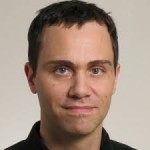 It is with great pleasure we welcome Robert Kihlberg to the TripleED research team. Robert´s broad academic background includes areas such as social psychology, international crisis and conflict management and organization & leadership and thus fits very well with the inter-disciplinary approach to research. The past ten years Kihlberg has worked as a strategist and coordinator to establish a cooperative arrangement between Sweden’s six northern County Administrative Boards in the field of emergency preparedness. Kihlberg will be doing research on various aspects of the police reorganization as part of the TripleED research team.
It is with great pleasure we welcome Robert Kihlberg to the TripleED research team. Robert´s broad academic background includes areas such as social psychology, international crisis and conflict management and organization & leadership and thus fits very well with the inter-disciplinary approach to research. The past ten years Kihlberg has worked as a strategist and coordinator to establish a cooperative arrangement between Sweden’s six northern County Administrative Boards in the field of emergency preparedness. Kihlberg will be doing research on various aspects of the police reorganization as part of the TripleED research team.
2nd edition: DOING RESEARCH IN EXTREME ENVIRONMENTS
2ND EDITION
DOING RESEARCH IN EXTREME ENVIRONMENTS:
from methodological to ethical considerations
This workshop in the Organizing in Extreme Contexts series will focus on the methodological and ethical considerations associated with doing research in extreme contexts. Extreme contexts include ” risks of severe physical, psychological or material consequences…to organizational members or their constituents » (Hannah et al., 2009)”. The Ebola virus epidemic in West Africa, the resurgence of ideological extremism, and the accidental death of climbers in Nepal are recent examples. Because of the risk of the researchee and the researcher, the inability to predict significant events, and the not so uncommon inaccessibility, extreme environments pose significant methodological and ethical challenges – but also opportunities – for the one pursuing such an avenue. This workshop therefore includes but is not limited to questions such as:
- How to access an extreme environment?
- When does the danger justify the benefit?
- How to study the extreme in practice?
- How to ensure relevance to other organizations?
- The consequences of isolation on the researchee, and researcher?
- Is there a need for new tools for research, or is the old ones good enough?
Reflecting, and providing an answer to these, and other questions associated to the topic is pertinent in advancing the knowledge not only about extreme environments per se, but also, and more importantly, about larger questions within organization theory. By reflecting upon these larger questions we as a community of scholars may be able to provide a counter-point towards other forms of theorizing can be mirrored and compared. From this vantage point, the workshop is hence dedicated to researchers that wishes to share their experiences, and better understand the considerations related to research in extreme environments.
The workshop is arranged around two master classes – focusing on qualitative research methods in extreme environments, and three roundtable discussion sessions – focusing on individual papers and reflections from those. Mats Alvesson, Ann Cunliffe and Ann Langley will be our distinguished speakers.
If you wish to participate, please email projectorganizing@gmail.com, before October 15th.
For the purpose of organizing the roundtables we need a title and a brief summary of your presentation (or the work-in-progress paper) as soon as possible but at the latest on 1st of December.
WHEN: 28-29th of January, 2016
WHERE: Umeå School of Business and Administration, Umeå university, Umeå, Sweden
COST: None
The workshop is arranged by TripleED at Umeå School of Business and Economics, GePS, HEC Montreal and the Chair for Organization Studies, University of Hamburg.
FUNDING!!! A police in change: A studie of everyday sensemaking/giving in the largest organisational change initiative in Sweden in all times
The other week we received the great news that we were one of the projects that was awarded funding from Forte, one of the research councils in Sweden. In the three-year project Markus, Oscar, Ola, Linda and Robert (the new doctoral student) will research the transformation of the Swedish police. Please find a summary of the project below.
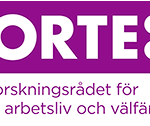
The project plans to investigate how law enforcement- and civilian personnel within the Swedish police create and give meaning to the on-going transformation of the Swedish police. The change that occurs represents one of the largest adjustments of a government agency in Sweden and thus has extensive economical-, organizational- and geographical consequences in a function with pronounced societal importance. Theoretically, our project aims to develop sensemaking/-giving literature focusing on how an integrated view of time and space – timespace – affects practice. Focus on timespace represents a new area within both sensemaking/-giving literature and the practice literature and therefore has significant potential. In addition, the project provides a theorization of modern police work that in contrast to previous studies focus on how police practice is established by both civilian and law enforcement personnel. In terms of methodology, the project contributes to the refinement of the practice approach through the development of methods to study the motivation for action as a result of being present in a certain timespace. The methods that will be used include ethnography, interviews and document studies where we follow the function of direct police leaders in the Northern Region. In a pre-study, tensions in the reorganization concerning these direct leaders were identified. The project aims to follow these tensions through the implementation of the new organization and study the consequences for both police and civilian personnel. Our study contributes to society by highlighting and developing modern policing where all staff groups is significant. Furthermore, we build knowledge of how sensemaking/-giving of police professionalism is changing and the skills requirements (among all staff) that surrounds the “new police” with that. Ultimately this is important for all government agencies experiencing organizational change, but in particular those that handle large geographical distances.
Samantha Warren & Alison Stowell: Embodied logics: Material institutional work in the maintenance of e-waste
Again, as a result of the workshop previous this week business administration had another opportunity to listen to yet an interesting presentation. This time it was Professor Samantha from Essex Business school and Dr Alison Stowell from Lancaster university. The paper dealt with e-waste practices and the role of the body in upholding the institutional practices.
